The crowd approaches the Alberta Legislature on October 6, 2025. Amanda Erickson/The Griff.
A collective response from a collective front.
Alberta Federation of Labour president Gil McGowan took to the stage to speak on behalf of Alberta’s labour movement the day teachers returned to class. Around McGowan stood union leaders, and members of a solidarity pact known as the Common Front, which included Darren Tellier, president of the Grant MacEwan University Faculty Association.
The Common Front went public in March, with member unions representing over 300,000 workers in Alberta from a wide range of industries and sectors, including both public and private sectors. The group made a commitment to collectively defend against what it views as attacks on labour.
It has since returned to the forefront after the provincial government invoked the notwithstanding clause to end the three-week-long teachers’ strike. In the aftermath, Amnesty International Canada condemned the government’s actions, claiming that the use of the notwithstanding clause violated teachers’ constitutional right to strike. Since then, those involved continue to wait and see how members of the Common Front, such as MacEwan’s faculty association, respond.
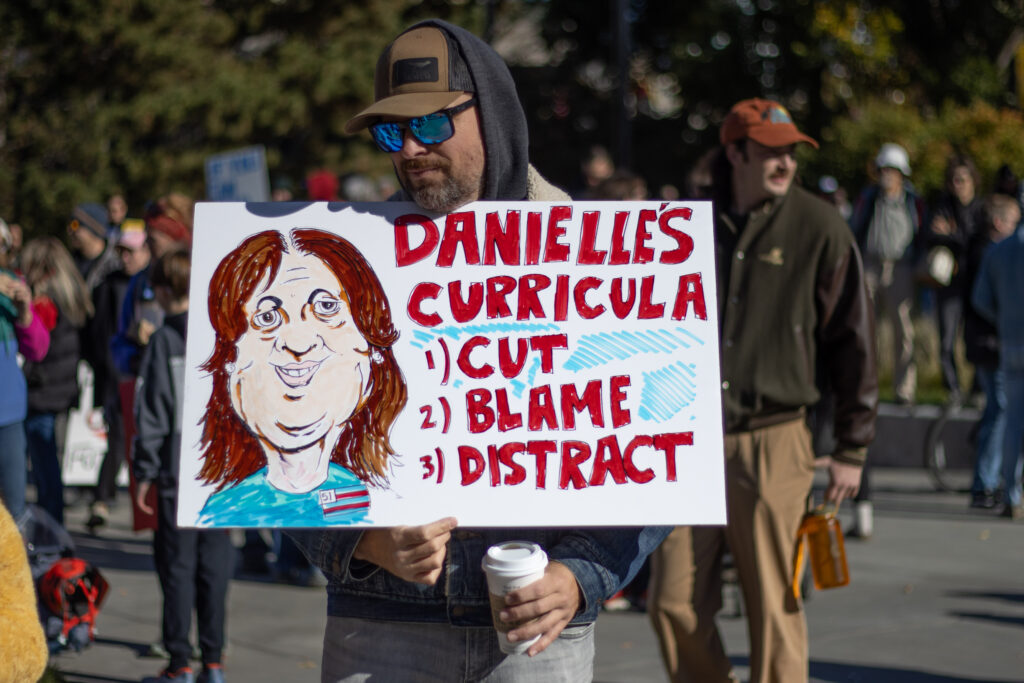
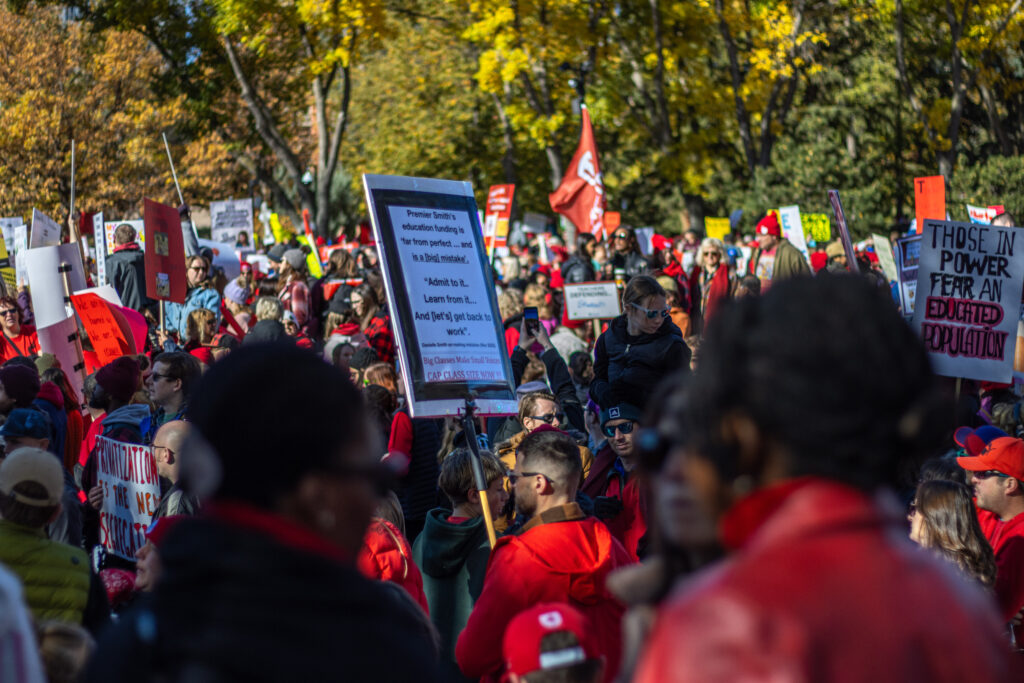

Tellier said he sent out surveys to gauge faculty members’ thoughts about the government’s use of the notwithstanding clause to force the teachers’ strike to end. According to the responses, a vast majority of members are aware of the teacher’s strike, and they want MacEwan’s faculty association to advocate against the use of the notwithstanding clause. “So I would say that our members are quite aware and quite engaged, and want us to be proactive,” Tellier said.
Tellier also stated that the survey inquired about members’ support for a general strike, to which a good majority of respondents responded. However, Tellier cautioned that faculty support comes with conditions, and he doesn’t think most faculty expect to “walk off the job tomorrow on what they call a wildcat strike.”
“So I would say that our members are quite aware and quite engaged, and want us to be proactive.”
— Darren Tellier, president of the Grant MacEwan Faculty Association
When asked what initially motivated MacEwan’s faculty association to join the solidarity pact, Tellier said it was due to contract negotiations, and members knew from the previous round of bargaining that union leaders were essentially kept in the dark during negotiations.
In 2019, the then-Jason Kenney-led government issued a “secret mandate” from a provision in Alberta’s Public Sector Employers Act, which set private, binding limits to dictate what employers could and couldn’t offer in negotiations with public sector unions. Some critics argue that the government’s secrecy and increased intervention during contract negotiations have eroded trust and transparency by tilting the balance in favour of employers.
According to a 2024 report by the Parkland Institute, Kenney’s government expanded the role of the Provincial Bargaining and Compensation Office (PBCO) from primarily coordinating public sector negotiations to actively participating in the bargaining process. The report revealed that under Kenney, officials from the PBCO attended bargaining meetings and acted with authority to ensure bargaining proposals strictly aligned with government mandates. As a result, the PBCO’s involvement not only slowed down negotiations, but the secretive nature of the mandates sowed distrust among unions.
“And so, that’s kind of where the Common Front came out of, was to try to help each other understand what was going on and what was being brought to the table, across tables, rather than just at our table, and sort of look for the similarities, and also the the apparent ‘no go zones’, and kind of try to find out why these things were always ‘no go zones,” Tellier said.
“So what’s happened? And this is true, whether it’s the teachers or the people who are direct workers for the government in AUPE or faculty Associations, it’s like they’re negotiating with a piece of wood, because what happens is that the people who their employer has appointed lack any independence in these negotiations.”
— Alvin Finkel, Labour historian at Athabasca University
“And I think you saw a very clear and explicit demonstration of that when the government said no to the teachers,” Tellier added. “You’re not allowed to talk about classroom size and classroom complexity, right? I think that came right to the fore.”
Alvin Finkel, a labour historian at Athabasca University, said faculty associations only began to see the need to align with other workers in the 1990s during Ralph Klein’s regime, which saw government funding significantly reduced for post-secondary institutions.
However, Finkel said alliances between faculty associations and traditionally working-class labour unions show a collective realization that neither Smith’s government nor employers intend to renegotiate contracts in good faith. Finkel added that it’s as if labour unions in Alberta are negotiating “with a piece of wood” because government-appointed officials are always controlling the bargaining process.
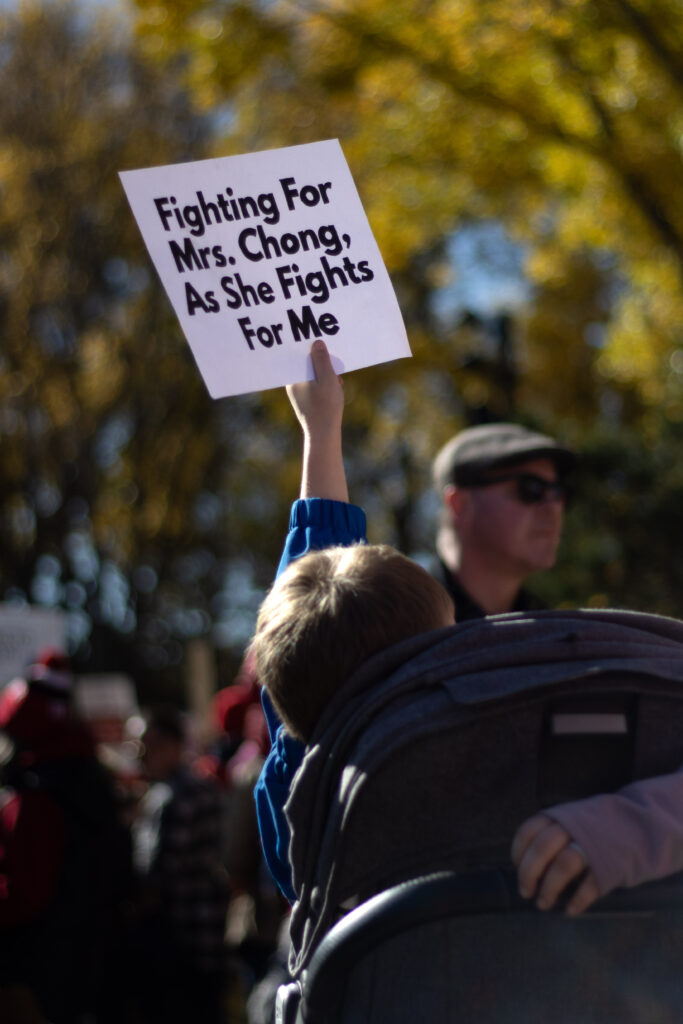

While blue-collar workers and academics have different kinds of work, they share similar concerns, Tellier said.
“I think that the important thing to remember is that in the history of Canada, and the U.S. too, but in the history of Canada, unions broadly, are the foundation of what we refer to as civil society,” Tellier said. “You know, the ones who advocated for all kinds of human rights, workers’ rights, safety protections, equity, you know, women’s rights — all that kind of stuff.”
“And so maybe it’s a renewal of all of that—there was a whole bunch of work done 100 years ago, and maybe it’s just a renewal of that kind of movement.”
Tellier is unsure whether a general strike is the crucial issue at the moment, despite it being the centre of the media’s focus. Instead, he thinks the key is to continue building upon the collective energy and mobilization of workers and unions.
Finkel said he is unsure if a general strike will take place in Alberta, but that he thinks the public will find out soon.
“But you know, the trade union movement is at a crossing point right now, because if they don’t respond to [Premier] Smith with something like a general strike, she’s going to continue to just ramrod through stuff for all of them.”

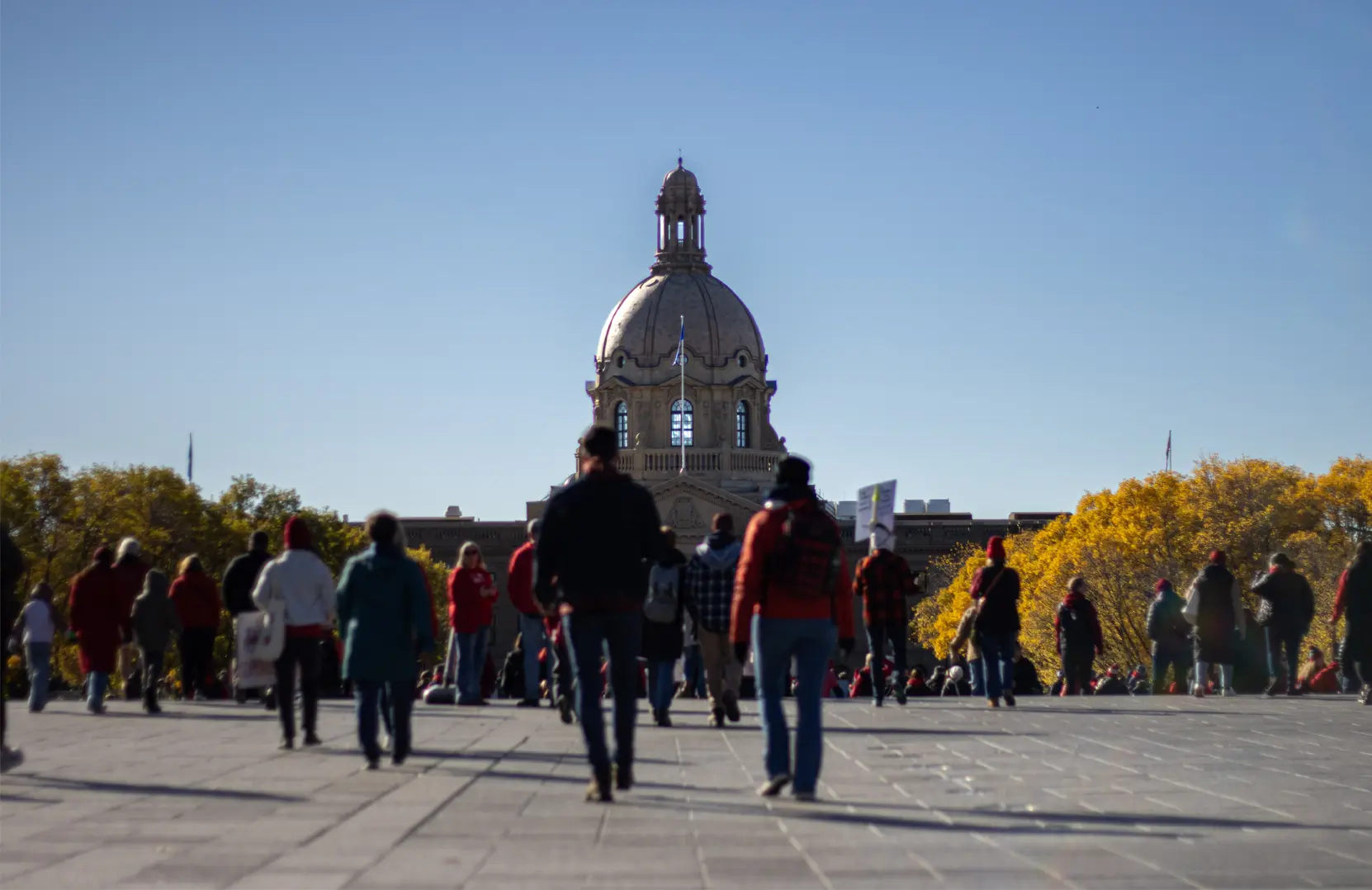


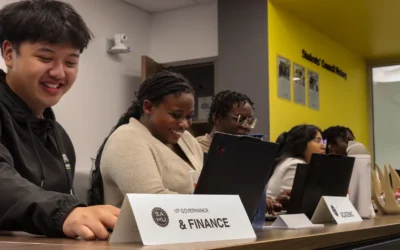
0 Comments